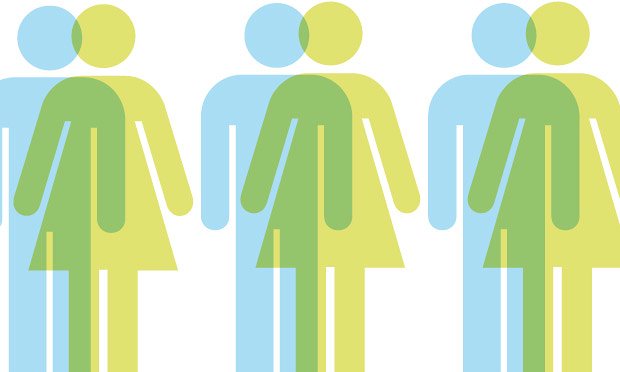The idea and usage of gender neutral pronouns is really not that new, but, as was the case for me with many things, I didn’t know of their existence until I came to college. My high school didn’t have that many openly gay students who wanted the rest of us to use neutral pronouns, and a fairly conservative health program that barely scratched the surface of sex, let alone sexuality, definitely wasn’t going to fill me in.
That said, UCSC was named one of the top 25 LGBT-friendly campuses, and the effort to normalize the non-heteronormative is very strong here—every ice-breaker I ever have done or will do asks for everyone’s pronouns as well as their name and major in an effort to get people out of the habit of assuming that just because someone outwardly presents as a certain gender that they also identify as that gender.
It’s hard to do, not gonna lie. Twenty years of assuming that because that person looks like a woman I should call them “she” is a hard habit to break, and outside of my little progressive bubble of Santa Cruz the world is slow to make the transition, making it harder still. I got lucky, I think, to have friends who use neutral pronouns and kindly and figuratively, mostly, spray me with water if I use the wrong one, so I’m learning.
Instead of “you guys” I try to use “y’all” (probably way more than a person not from the south should) and until people tell me otherwise, I try to use “they” instead of pretty much anything else. This isn’t to say I should get a cookie for my efforts or that I’m special for making them, but rather that college is teaching me and people in my age group something that the rest of the world is still catching up on.
My research for this article turned up a lot of news pieces (like this one) that simply explain what the heck a neutral pronoun even is—which says a lot about how little is said about gender identity in general in America—but I found these pieces, for the most part, to be pretty decent. The ones I read were largely unbiased and genuinely seemed invested in educating people on a mostly foreign issue, but they also kind of made me think of the academic papers I’ve read on scientific advances or a newly discovered animal species. They tread on eggshells, because they don’t really feel they have all the facts yet, and they’re all pretty much repeating the same research, because not that much exists to begin with. They’re stiff, and a little pedantic, but they’re trying, which is more than can be said for some other people.
Happily, when I googled “gender neutral pronouns,” I mainly got articles like the one from CNN above. I had to give Google a little more direction to find what I’m about to talk about, but if you want to avoid mentions of misgendering and general nastiness, I’d stop reading here.
Much like the recent drama surrounding gender neutral bathrooms (don’t even get me started), the increased use of neutral pronouns in everyday life is a polarized issue. Employees have started fighting for their co-workers and employers to respect their pronouns to, predictably, mixed success.
Weirdly, although one person walked away from their settlement feeling “safe” and the other felt they needed to resign, both these cases happened in Oregon, where there it’s legal to classify yourself as non-binary and nearly 30 percent of people describe themselves as liberal. The fact that one of the settlements ended in actual change in policy and the promise of gender neutral bathrooms is a positive step, but it would be unrealistic to expect everyone to suddenly change their behavior overnight, which is good, because people aren’t doing that. (Here comes the aforementioned general nastiness.)
More and more universities, Harvard included, are giving students the option to officially choose neutral pronouns, but others are balking. The University of Tennessee in Knoxville removed guidelines and resources on neutral pronouns from their Office of Diversity and Inclusion website after facing political repercussions for having those guidelines up in the first place, with the president of the university system basically saying he and the administration never really meant for everyone to follow the guidelines and use neutral pronouns, anyway. To deny students the feeling of safety and validation is already pretty terrible, but to provide a safe space and then take it away is worse.
I could go on and on about what I perceive to be a grim reality, but at the end of the day, no one is looking at me and assuming I use a pronoun that I don’t actually use, which really makes everything I’ve just written a fairly privileged and skewed view of an issue I arguably don’t know that much about. That said, my bit of fortune cookie wisdom for today is that all I or anyone can really do is make an effort to be kind and to be validating, and the rest will have to work itself out.











